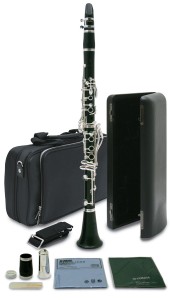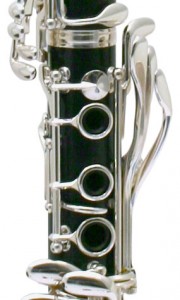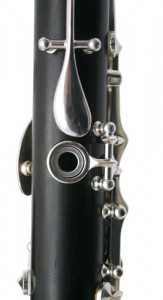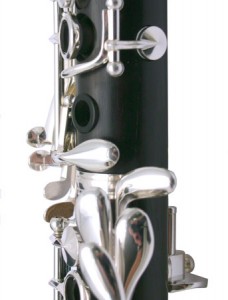New Yamaha YCL-CSGIII… move over Buffet R13?
18th August 2011Sam, Woodwind Dept: Yamaha Pro Clarinets have always sold steadily but we must be under no illusions, if you look at the stats for clarinet sales (over the last 10 years) around the £2000 mark the Buffet R13 stands head and shoulders above the rest, with its brother the Buffet RC usually coming in 2nd place. Of course I refer to Dawkes Music stats primarily and there could be historic reasons for this R13 loyalty from customers and teachers, BUT, if you compare the UK wide sales stats on Buffet vs Yamaha vs Selmer vs Leblanc (there are a couple of others but the numbers sold are so insignificant they’re not worth mentioning) the numbers of Buffet sold are miles ahead of the others. Before I get to the NEW Yamaha CSGIII it’s good to think about this R13 phenomenon because we must understand why it’s kept it’s place at the top of the tree, no other instrument I can think of has done this. For example Yamaha YAS62 Alto Saxes used to outsell others by far but the last 10 years has seen the rise of Yanagisawa, Mauriat, Cannonball etc and the 62 dominance has been hit. There aren’t any flutes that consistently outperform others by such a margin either, nor Trumpet, or Trombone etc etc.
So, why R13’s? Well, from a retailer point of view we see people come in to try upgrade/pro clarinets and some people have preconceptions about what they want to buy, advice about what they should buy, and others don’t…regardless, when you put the main 4 or 5 choices in that testing room the R13 more often than not comes out as the winner. Projection, tone quality, tuning stability, good feeling keywork all contribute to the choice and of course the legacy of the name that has been so well known across the world. Basically it feels good and plays better than the others, something clicks inside the majority of people and says “buy me, I work!”
And here’s the point, this builds momentum, teachers buy them and consequently recommend them to their pupils, people sit next to other players in band who use an R13 and when they come to buy they of course know their friend has one and is happy with it…so they buy one too. So we stock more, we make sure the price is the best it can be and we sell more. Sometimes however it’s time to stop and think about it, let’s really assess all the options, is this still the best choice for 8/10 people? Well something has just come along that made us think…and it may just be the ‘game changer’.

Complimentary to these design improvements, that benefit the player’s ability to produce all manner of tone, the Yamaha also beats the competition hands, arms and legs down from the point of view of manufacturing. Without wanting to point fingers there are various points on the learned opposition which could be improved upon, nothing major but little niggles that needn’t be present. Why should the joints get stuck together after a month or two, why should cheaper cork equivalent be used that falls off easily, why should we cope with the slight tuning foibles that are present, you get the idea.
Should we all rush out and buy a new CSG-III? Well you’re more than welcome to…but seriously if you teach or even pass on recommendations through your own experience we would strongly recommend you come and try these, if only to get your info up to date. If you’re looking into buying a pro clarinet at the moment and have heard about the R13 but not thought about Yamaha then you should also check them out, it could be what you’re looking for. REVIEW BELOW…
Yamaha YCL-CSGIII REVIEW – Prof Anton Weinberg
“I have just tested the new Yamaha CSGIII clarinet. The result is as I would have expected, expecially with Michael Collins acting as an adviser for the new design. The tone is full, round and rich and has the attributes of an excellent R13 without some of the problems. The high thumb C is a peach and there are no veiled notes on the instrument at all.”
“A mixture of cork and leather pads are used and similarly ‘shaped’ keys are placed in advantageous positions. There is the extra Eb/Ab key but for the first time on any instrument it does not get in the way. Equally the raised finger hole on the left hand C/G is excellently placed and there is a raised finish on either end of the left hand little finger C# tone hole, water is therefore discouraged from entering.”
“The quality of the wood is really impressive and two barrels are provided of different length. Lastly intonation is impeccable.”
“If I had any criticisms I would have added that Yamaha might have been more insightful as to current trends in mouthpiece chamber design. Instead they supply the standard ebonite mouthpiece that they have manufactured for some time.”
“Initially I was of the view that the new Selmer Privilege was probably the only clarinet that might be a threat to the R13 dominance (although it’s higher pricing makes that harder for people to attain), but this Yamaha CSGIII is a serious contender and ends the usual criticisms, of a lack of projection with little individual character, that used to be levelled at pro Yamaha clarinets.”
Michael Collins VIDEO on the Yamaha YCL-CSGIII Lever Key Model Clarinets


